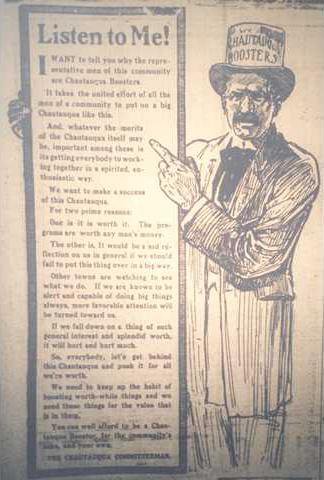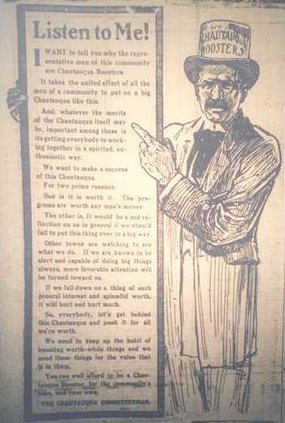Each week we’ll take a step back into the history of Great Bend through the eyes of reporters past. We’ll reacquaint you with what went into creating the Great Bend of today, and do our best to update you on what “the rest of the story” turned out to be.
A century ago this week, the popular vaudevillian dancer, actor and comedian Harry Fox first danced what would become known as the “foxtrot” at the New Amsterdam Roof Garden in New York City, according to the history website, Historyorb.com. It wouldn’t be long before the dance took off, and another popular dancing couple, Vernon and Irene Castle, refined it in such shows as Irving Berlin’s Watch Your Step, in December, 1914, at the same venue. From there, it began to appear in silent movies, and you can see a 1920s vintage clip of the dance, complete with a recording of Fox singing “Halfway to Heaven” on the internet at: https://www.youtube.com/watch?v=s-z2jm8Hsak#t=33
In Great Bend, people were looking for ways to beat the heat, and that did not appear to include dancing. A quick browse through the Great Bend Daily Tribune brought up no advertisements for dances, ballrooms, or even private parties. Those with the means were escaping to the Colorado mountains, but those who remained attended revivals, picnics, the public swimming pool and the annual Chautauqua. It would be the last bit of peace and quiet in a world about to erupt into war.
Chautauqua
Hoisington reported the opening of an eight day program of the popular adult education and entertainment circuit making the rounds around the state. The tradition started in the late 1890s and was popular for several years, but essentially died out after the 1930s.
“There will be select entertainment for all who attend,” the story promised. Several artists, orators, politicians, lawyers, and musical performers were listed. Vice President Thomas Marshall was expected on Aug. 4, the last day of the event.
Like many Vice Presidents, Marshall spent a lot of time after his term in office on the lecture circuit. He was known for his wit. While presiding over the Senate in 1917, he was heard to say to the clerk during a long speech by Senator Joe Bristow of Kansas on the needs of the country, “What this country really needs is a good five-cent cigar. “
Cooler climes
A few weeks earlier, the editor William Townsley corresponded with the paper about his trip to the Manitou Springs, Colo.,area, dropping names of many prominent Great Benders that were also on vacation in the mountains. It paid to have train service to the front range, making the trip an easy one for those who could afford it. Local accounts of these trips continued to surface throughout the summer.
“Jim McDonald who has been climbing around in the Rockies the last week is back home again having returned this morning. Jim didn’t lose much flesh on the trip so it may be that instead of climbing he followed the advice of John McGinty and Joe Stauffer (both from the St. John and Seward area). They found a place at Manitou where they can get a schooner of suds a mile high and Joe leads his friends to the fray. “Just tell them out home,” he says, as he blows off the foam, “that they come a mile high and while the folks back there are sweltering in the heat we are taking life easy. This is the kind of fish bait we use.”
Swimming pool
For those who could not beat the heat by escaping to cooler climes, a dip in the city swimming pool brought a brief respite. But in 1914, chlorination had not yet been perfected.
“(The swimming pool) will be closed Thursday for midweek cleaning. The water is now clear and fresh and to be sure to keep it so all the week the pool will be emptied and washed tomorrow and refilled Friday morning.”
Prior to the introduction of sterilization chlorine, bromine, ozone, or ultraviolet light, most swimming pools were filtered to keep them somewhat clean, and the water was changed frequently, according to Kevin Olsen, Montclair State University, author of the report, “Clear waters and green gas: a history of chlorine as a swimming pool sanitizer in the United States.” More pools were chlorinated in the 1920s, and by the 1930s, it became standard operating procedure. It went a long way towards disease prevention, as well as helping water to look and smell more inviting. “Because many impurities floated on the top of the water, almost all pools were fitted with “scum gutters” along the edges from which these could be drawn off,” Olsen wrote.
GAA picnic
A group called the National German American Alliance, included many locals of German descent. According to Wikipedia, it was a professional movement which promoted German language instruction in school, the foundation of educational societies, including the German Historical Society, and the publication of histories and journals to demonstrate “the role German-Americans had played in the development of the United States.”
“The picnic held by the members of the German American Alliance yesterday at the John Komarek grove, near Dartmouth, was a big success in every way. Jacob Frohwerk, president of the state alliance and editor of the Staats-Zeitung, the most influential German paper in the state was present and made the address of the day, speaking both in German and English. Fred Zutavern (Great Bend) and Jos. Strothman of Ellinwood also spoke briefly. The Garfield township Military Band furnished music for the occasion. The affair was well managed and quiet, the kind of picnic that the Alliance knows how to hold and everybody who attended had a good time.”
The next morning, the front page headline read, in all caps: SERVIA AT WAR WITH AUSTRIA. The dateline, July 26, from Vienna, was followed by an account of the military activity on the Danube. By Aug. 3, the headlines bellowed: GERMANS INVADE FRANCE, ENGLAND VERGES ON WAR. A few days later still, a list of countries at war with one another followed, and the war was on. This spelled the beginning of the end for the NGAA, according to the Harvard University Press via Wikipedia.
“In an atmosphere of rising anti-German sentiment, the NGAA’s outspokenness against prohibition, its stance for neutrality during World War I, and its support of Germany, especially its practice of raising money for German war relief, led to its charter being revoked in August 1918. Concerning a brief version of the report about the NGAA the charter was revoked by vote in July 1918, and finally signed by the president on July 31. 1918.”
Out of the Morgue
The calm before the storm--summer fun before the start of the Great War in 1914





